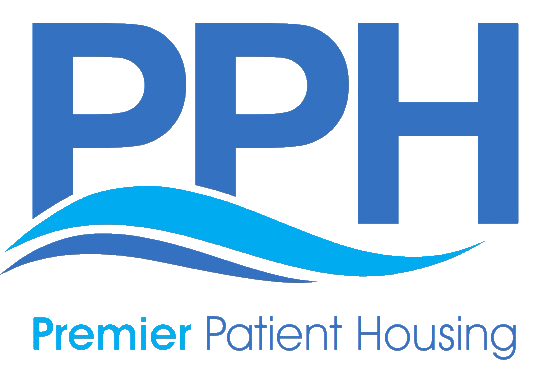National Eating Disorders Awareness Week

The National Eating Disorders Association (NEDA) promotes National Eating Disorders Awareness Week every year. This year, NEDAW falls on February 22nd – February 28th. Their mission is to take this week to educate the public, spread hope for those in recovery and their families, and provide resources that can help save lives. Premier Patient Housing is happy to promote NEDA and help those in the Houston community and their families that have been effected by eating disorders through the knowledge and resources found below.
What is an Eating Disorder?
According to eatingdisorders.org, eating disorders are not a lifestyle choice, a diet gone wrong or a cry for attention. Eating disorders can take many different forms and interfere with a person’s day to day life. An eating disorder is a serious mental illness, characterized by eating, exercise and body weight or shape becoming an unhealthy preoccupation of someone’s life.

Types of Eating Disorders
The Diagnostic and Statistical Manual of Mental Disorders (DSM) recognizes four eating disorders, Anorexia Nervosa, Bulimia Nervosa, Binge Eating Disorder and Avoidant/Restrictive Food Intake Disorder (ARFID).
Anorexia Nervosa
Anorexia nervosa is a psychological illness that has devastating physical consequences. It is characterized by low body weight and body image distortion with an obsessive fear of gaining weight, which manifests itself through depriving the body of food. It often coincides with increased levels of exercise. Anorexia nervosa usually develops during adolescence and generally has an earlier age of onset than bulimia nervosa and binge eating disorder
Bulimia Nervosa
Bulimia nervosa is a serious psychiatric illness characterized by recurrent binge-eating episodes (the consumption of abnormally large amounts of food in a short period of time), immediately followed by self-induced vomiting, fasting, over-exercising and/or the misuse of laxatives, enemas or diuretics.
Binge Eating Disorder
Binge eating disorder (BED) is a mental illness characterized by regular episodes of binge eating. Binge eating involves eating an excessive amount of food, which may take place in a rapid space of time, or may be more of an extended grazing. These episodes can feel chaotic, uncontrollable and highly distressing.
Avoidant/Restrictive Food Intake Disorder (ARFID)
Avoidant/restrictive food intake disorder (ARFID) is defined as an eating or feeding disorder characterized by a persistent and disturbed pattern of feeding or eating that leads to a failure to meet nutritional/energy needs. The food avoidance and restriction that define ARFID can lead to medical or mental health consequences that further exacerbate food avoidance and restriction and serve to maintain the illness. ARFID is persistent, more severe, can involve the restriction of both familiar and new foods, and has significant physical and mental health consequences.

Warning Signs
The warning signs of eating disorders are sometimes hard to detect, especially if the individual denies or purposely hides their struggle with food. Watch for dramatic calorie reduction, purging behaviors, uncontrollable overeating, and/or unrelenting distress about body weight and shape. Here are some physical and emotional warning signs to be aware of in yourself or your loved ones.
Physical Signs
- Dramatic weight gain or loss
- Frequently talking about food, weight, and shape
- Rapid or persistent decline or increase in food intake
- Excessive or compulsive exercise patterns
- Purging, restricting, binge eating, or compulsive eating
- Abuse of diet pills, laxatives, diuretics, or emetics
- Denial of food and eating problems, despite the concerns of others
Emotional Signs
- Heightened anxiety around meal times
- Depression or anxiety
- Moodiness or irritability
- Heightened sensitivity to comments or criticism about body shape or weight, eating or exercise habits
- Extreme body dissatisfaction/ negative body image
Getting Help
If you, or a loved one, needs help in the fight against an eating disorder there are resources and organizations to help. Early detection, initial evaluation, and effective treatment are important steps that can help an eating disorder sufferer move into recovery more quickly, preventing the disorder from progressing to a more severe or chronic state. Here are locations in Houston that are here to help.
Eating Recovery Center Houston
The Eating Recovery Center of Houston offers daily recovery focused programming for patients struggling with eating disorder behaviors. Their Intensive Outpatient Program is three days a week. Both programs are led by a multidisciplinary eating disorder treatment team of compassionate professionals who will help light the path for patients and their families to find lasting and sustainable wellness.
Medical Center for Eating Disorders
Medical Center for Eating Disorders is the first and only outpatient medical treatment center for eating disorders in the Houston area for all ages, children through adults.
Eating disorders take as much as a emotional toll on the body as it does physically. The Anxiety Center of Houston helps its patients get to the root of the problem to help in the recovery of those effected by eating disorders.
Premier Patient Housing hopes the knowledge and resources provided help you or a loved one that may be struggling with an eating disorder. If you or someone you know is struggling, we encourage you to reach out to the National Eating Disorder Association Helpline: 1-800-931-2237

